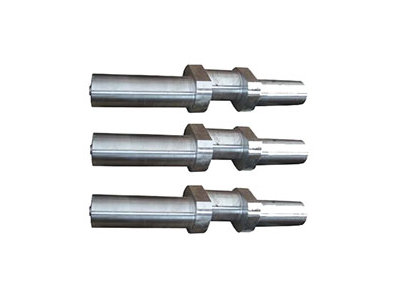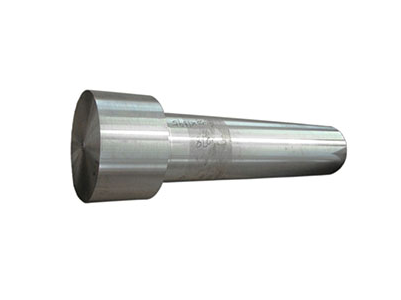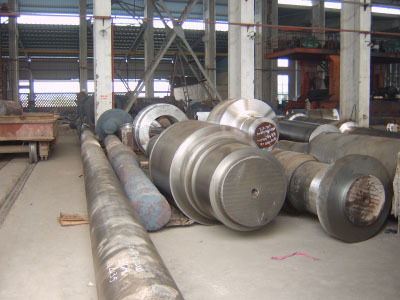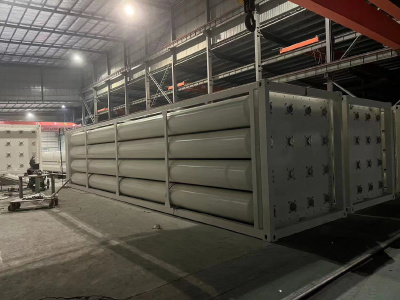Essential Insights into Forged Parts for Shipbuilding
Release Time:
Jul 08,2025
Forged parts play a pivotal role in the shipbuilding industry, serving as essential components that ensure the durability, strength, and efficiency of various marine vessels. The process of forging involves shaping metal using compressive forces, which results in a material that has refined grain structure and improved mechanical properties compared to cast alternatives. This makes forged parts ex

Forged parts play a pivotal role in the shipbuilding industry, serving as essential components that ensure the durability, strength, and efficiency of various marine vessels. The process of forging involves shaping metal using compressive forces, which results in a material that has refined grain structure and improved mechanical properties compared to cast alternatives. This makes forged parts exceptionally suitable for shipbuilding applications where performance and reliability are paramount.
One of the primary benefits of forged parts in shipbuilding is their superior strength-to-weight ratio. When vessels are subjected to extreme environmental conditions, including high waves, strong currents, and heavy loads, the resilience of forged components becomes critical. They are less likely to fail under stress, providing safety and longevity to the ship. This is particularly important for critical components such as propeller shafts, anchor chains, and structural frames, where failure could result in catastrophic consequences.
The manufacturing process of forged parts typically involves several steps. Initially, raw metal is heated to a temperature that makes it malleable, followed by shaping through various methods such as open-die forging, closed-die forging, or precision forging. Each method serves specific requirements based on the design and intended application of the component. Open-die forging is common for large parts, while closed-die forging is utilized for more intricate shapes. Precision forging, on the other hand, ensures tight tolerances and high surface quality, important for complex ship components.
In addition to their mechanical advantages, forged parts also offer excellent wear resistance, which is crucial in maritime applications where exposure to saltwater and abrasive materials is inevitable. This resistance helps in reducing maintenance needs and extending the lifespan of components, ultimately leading to cost savings for shipbuilders and operators.
Moreover, the customization capabilities of forged parts allow manufacturers to tailor components according to specific vessel requirements. This adaptability helps in designing unique parts that fit the unique specifications of different ship types, whether they are cargo ships, tankers, or luxury yachts.
In conclusion, forged parts for shipbuilding are indispensable due to their strength, durability, and adaptability. The forging process not only enhances the mechanical properties of the metal but also ensures that components meet the rigorous demands of maritime environments. As the shipbuilding industry continues to evolve, the reliance on high-quality forged parts will undoubtedly remain a cornerstone of producing robust and efficient vessels. By understanding the significance of these components, stakeholders in the shipbuilding sector can make informed decisions that contribute to the overall success and safety of maritime operations.
One of the primary benefits of forged parts in shipbuilding is their superior strength-to-weight ratio. When vessels are subjected to extreme environmental conditions, including high waves, strong currents, and heavy loads, the resilience of forged components becomes critical. They are less likely to fail under stress, providing safety and longevity to the ship. This is particularly important for critical components such as propeller shafts, anchor chains, and structural frames, where failure could result in catastrophic consequences.
The manufacturing process of forged parts typically involves several steps. Initially, raw metal is heated to a temperature that makes it malleable, followed by shaping through various methods such as open-die forging, closed-die forging, or precision forging. Each method serves specific requirements based on the design and intended application of the component. Open-die forging is common for large parts, while closed-die forging is utilized for more intricate shapes. Precision forging, on the other hand, ensures tight tolerances and high surface quality, important for complex ship components.
In addition to their mechanical advantages, forged parts also offer excellent wear resistance, which is crucial in maritime applications where exposure to saltwater and abrasive materials is inevitable. This resistance helps in reducing maintenance needs and extending the lifespan of components, ultimately leading to cost savings for shipbuilders and operators.
Moreover, the customization capabilities of forged parts allow manufacturers to tailor components according to specific vessel requirements. This adaptability helps in designing unique parts that fit the unique specifications of different ship types, whether they are cargo ships, tankers, or luxury yachts.
In conclusion, forged parts for shipbuilding are indispensable due to their strength, durability, and adaptability. The forging process not only enhances the mechanical properties of the metal but also ensures that components meet the rigorous demands of maritime environments. As the shipbuilding industry continues to evolve, the reliance on high-quality forged parts will undoubtedly remain a cornerstone of producing robust and efficient vessels. By understanding the significance of these components, stakeholders in the shipbuilding sector can make informed decisions that contribute to the overall success and safety of maritime operations.
多行文本内容元素
富文本内容绑定数据后可解析HTML语言内容
Key words:
News Hotspot








